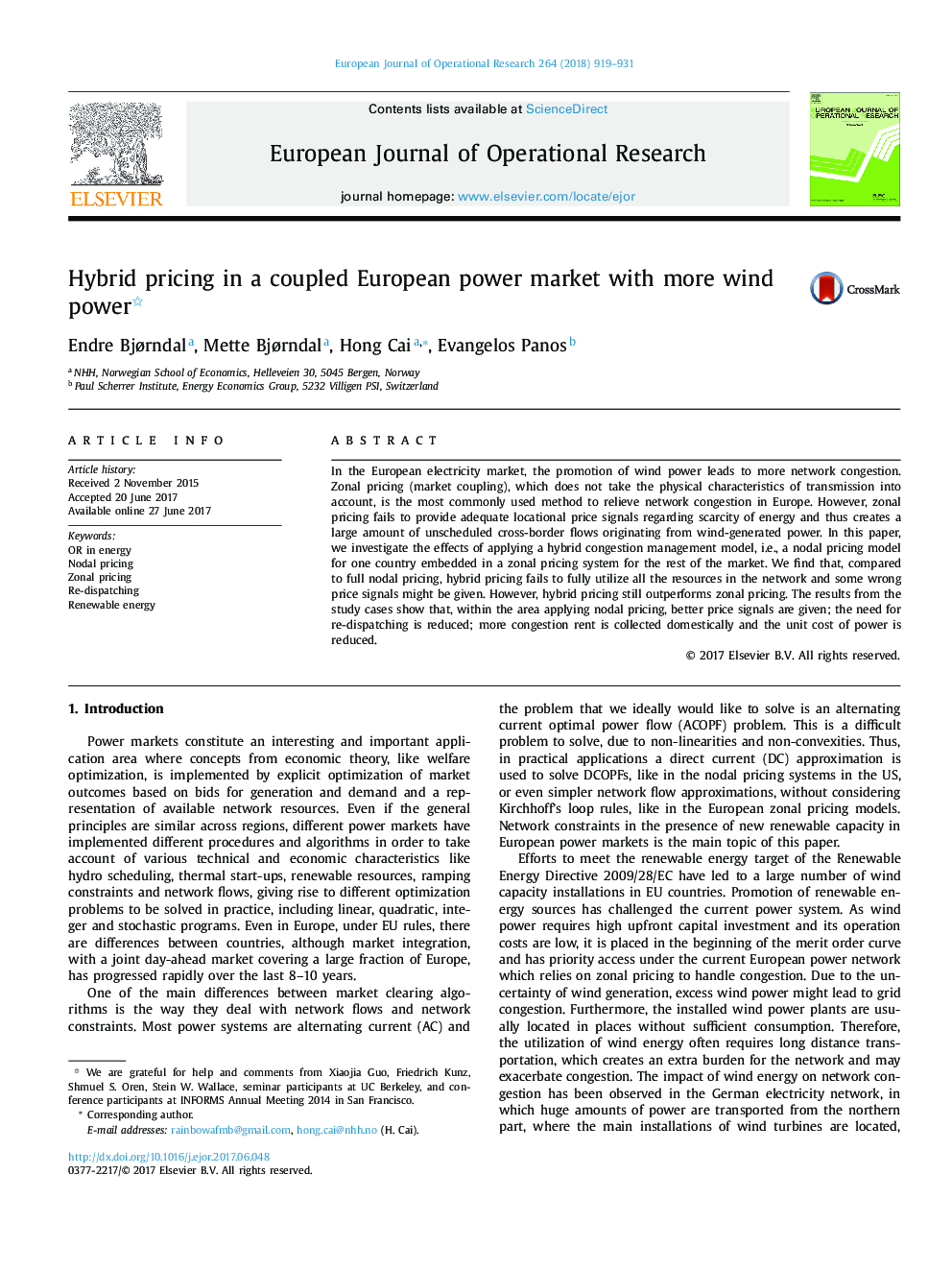| Article ID | Journal | Published Year | Pages | File Type |
|---|---|---|---|---|
| 4959312 | European Journal of Operational Research | 2018 | 13 Pages |
Abstract
In the European electricity market, the promotion of wind power leads to more network congestion. Zonal pricing (market coupling), which does not take the physical characteristics of transmission into account, is the most commonly used method to relieve network congestion in Europe. However, zonal pricing fails to provide adequate locational price signals regarding scarcity of energy and thus creates a large amount of unscheduled cross-border flows originating from wind-generated power. In this paper, we investigate the effects of applying a hybrid congestion management model, i.e., a nodal pricing model for one country embedded in a zonal pricing system for the rest of the market. We find that, compared to full nodal pricing, hybrid pricing fails to fully utilize all the resources in the network and some wrong price signals might be given. However, hybrid pricing still outperforms zonal pricing. The results from the study cases show that, within the area applying nodal pricing, better price signals are given; the need for re-dispatching is reduced; more congestion rent is collected domestically and the unit cost of power is reduced.
Related Topics
Physical Sciences and Engineering
Computer Science
Computer Science (General)
Authors
Endre Bjørndal, Mette Bjørndal, Cai Hong, Evangelos Panos,
